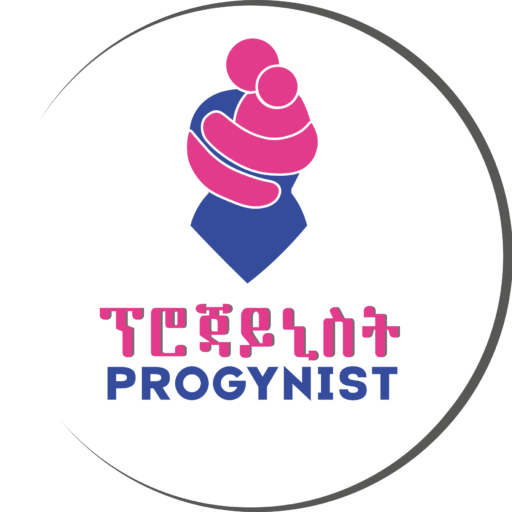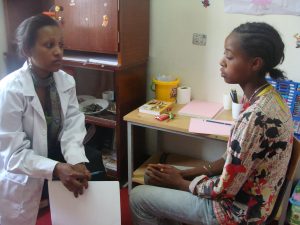
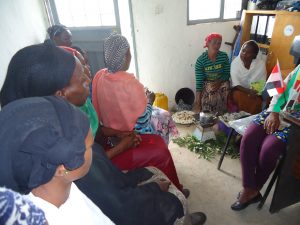
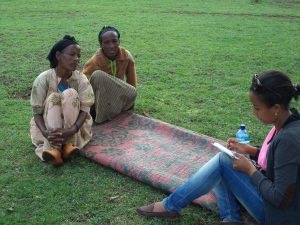
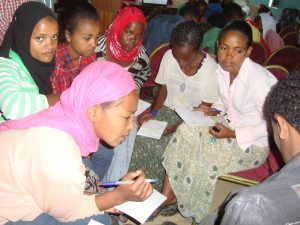
Progynist’s Hostel for victims/survivors of GBV
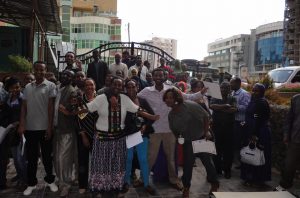
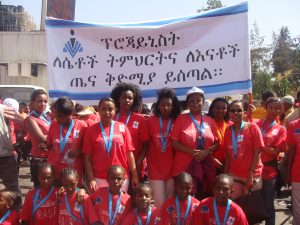
Progynist had constructed numerous centres for alternative basic education for girl children who had reached school age but could not go to school due to economic and social reasons. It had also constructed training centres in rural and urban locations for basic livelihood skills for young women. The opportunity for adult women literacy program was blended with economic strengthening initiatives through savings.
In Butajira, Progynist has built G+2 building for high school girl students who come from the rural areas to pursue their education. Poor as these girls are, the hostel provides for a clean living, cooking and studying place. It is still being supervised by our Butajira office. The hostel has a reading room with modest reference books. It is also disability friendly as it has ramps, and the ground floor is always reserved for the disabled students. 100-110 high school girls use this facility annually and for Progynist it has been a blessing to protect girls from being victims of abuse by relatives with whom they come to live to get education or sex offenders while trying to find alternative place to live. Progynist has dedicated one big room from this G+2 Girls hostel for runaway children and GBV victims.
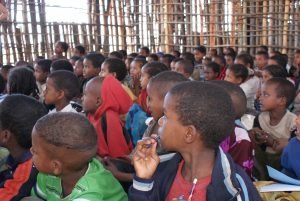
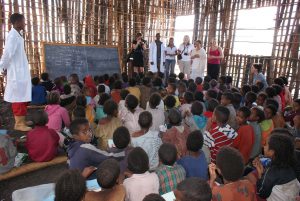
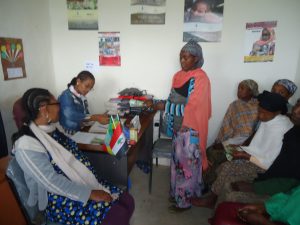
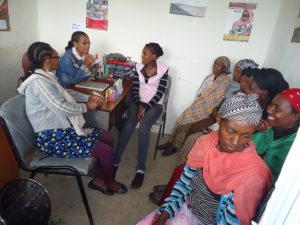
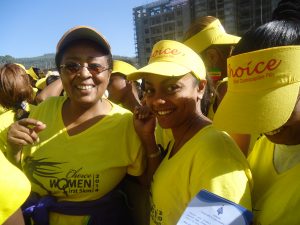

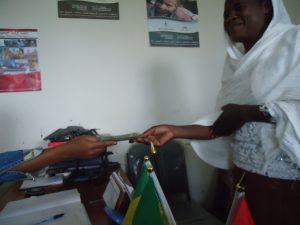
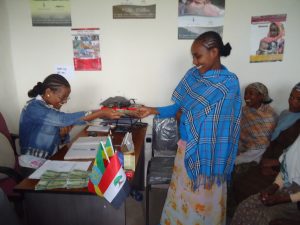
- Water supply – communal water points, school water points and water tankers, training on handling the Facilities
- Hygiene promotion – WaSH campaigns, construction of public bath, provision of sanitation materials, club training etc.…
- Sanitation – Construction of latrines, installation of waste disposal mechanisms and capacity building on waste management
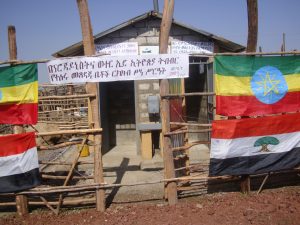
Networking/Partnership building with government and CSOs on peace building and women’s rights
Strengthening Capacity of school boards, teachers and PTA/Community partners
MHM: integrating menstrual health into WASH and SRH: Keeping Girls in School through Improved Reproductive and Menstrual Health – by developing cross-sectoral and cross-cultural solutions to improve girls friendly WASH facilities, access to menstrual products, education and health services.
Success Stories
I. Peace and Conflict Resolution
Meskan woreda & Mareko woreda are located in Southern Nations, Nationalities & Peoples Region/SNNPR in Guraghe zone, about 20 kms away from Butajira. The communities live on farming and small scale trades. They are intermarried, share similar culture and have been living with each other for the last many, many years.The two woredas entered into conflict due to boundary demarcation that brought 9 kebeles into Meskan boundary and created a new woreda called Misrak Meskan.
Heavy conflict broke out where communities of both sides of the woredas particularly women, children, pregnant women, disabled persons and other community groups were displaced from their homes. Homes and properties from both sides were burnt down; more than 90 people were killed during the conflict. The federal military force and regional command post tried to maintain law and order. The effort brought little result and the conflict continued with harsh actions from residents of both woredas.
Progynist brought together the main actors in the communities (religious leaders, community leaders, community elders, notorious persons who have experience in conflict resolution, women leaders, youth delegates, people living with HIV, women right organization heads, women and children right work owners, etc) to exercise community conversation programmes regarding peace & security. After series of such exercises and with an active involvement of Women & Children Affairs Offices and other focal government offices both communities realized the importance of peace and reconciliation.
The reconciliation process in Guraghe zone area is based on traditional and cultural reconciliation processes where killing/slaughtering black goats and spraying milk and honey with green grass, are applied on representatives of both communities as a symbol of maintaining peace.

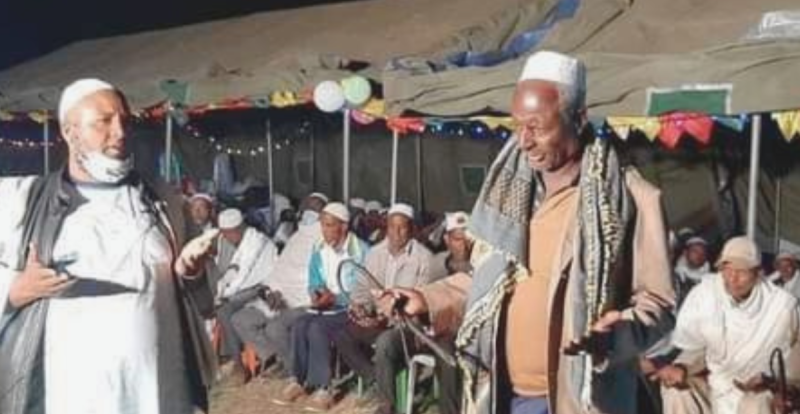
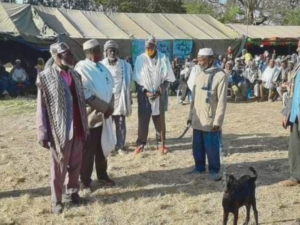
The tying of two toes of two persons from both communities’ representatives is to indicate the two communities are united and the conflict is solved forever (it means no one can restrain from the reconciliation, henceforth).
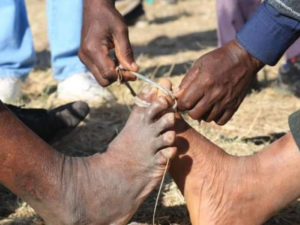
These integration and collaboration of Progynist & the government effort associated with the community awareness creation made by the Progynist ‘the roles of women in peace building’ brought a significant result for reconciliation made between the two communities.
Both communities of Meskan and Mareko are happy with the reconciliation and have started a peaceful life. The stakeholders who work with Progynist acknowledged the role of Progynist in the conflict resolution process and stated their gratitude for the common effort of bringing these two communities together.
II. Women’s Economic Empowerment
Habitat For Humanity Ethiopia Project
Prognist has implemented a project entitled “Empowerment for Vulnerable Communities through Integrated slum Area Development” The project aims to achieve the following objectives:-
- To assist selected 100 unemployed women to learn to solve their problems by themselves
- To build their capacity on how to establish a small business
- To work towards the creation of an enabling environment by linking them to public and private sector operators who can provide them with appropriate services
- To share experiences and disseminate best practices with and to interested parties respectively.
The project was implemented in Addis Ababa of Akaki Kality Sub-City of Wereda 3, Lideta Sub-City Wereda 5, and Gulele Sub-City Wereda 1. The project was funded by Habitat for Humanity Ethiopia.
Lorem ipsum dolor sit amet, consectetur adipiscing elit. Ut elit tellus, luctus nec ullamcorper mattis, pulvinar dapibus leo.

